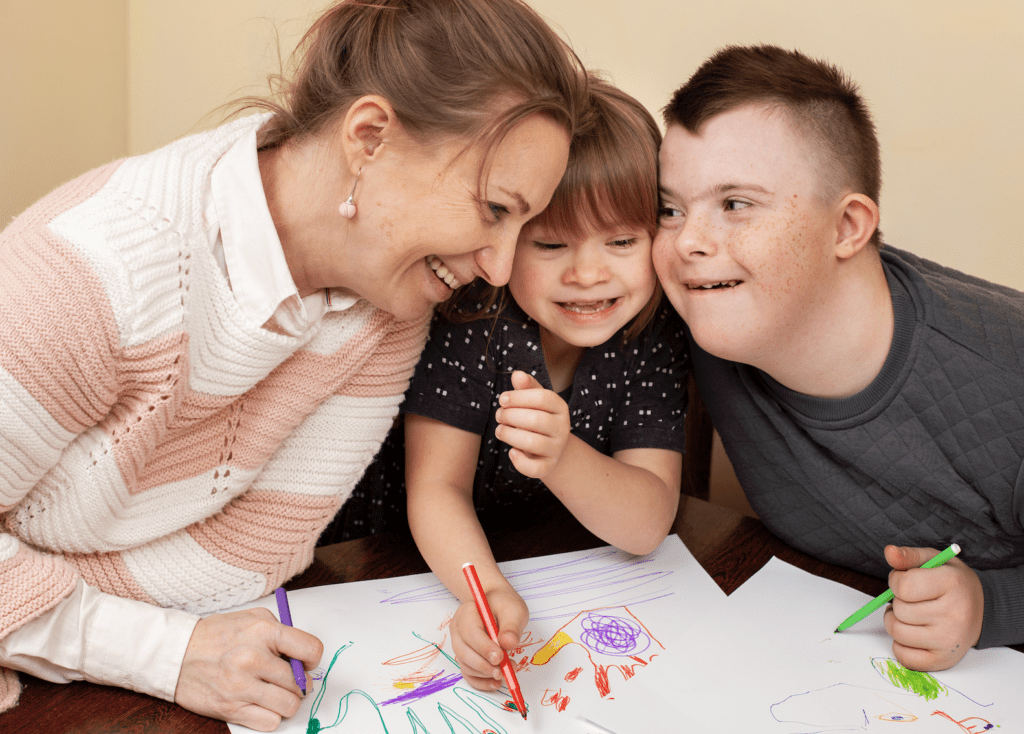We are NDIS provider furnishing positive behaviour services for people aged 18 months to 65 years and above!

Positive Behaviour
Support (PBS) / Behaviour Support Practitioner
Positive Behaviour Support Therapists at Helping Hand Behaviour Support (HHBS) create individualised, practical strategies that help people with disabilities live safer, happier, and more independent lives. Our experienced Behaviour Support Practitioners design tailored PBS plans that focus on understanding the why behind behaviours, teaching new skills, and promoting positive change in everyday environments, whether at home, school, or in the community.
At HHBS, we don’t just manage behaviours, we empower individuals and families to build lasting positive routines and meaningful relationships. Our approach combines evidence-based strategies with person-centred support, always prioritising dignity, respect, and quality of life. We work closely with families, support coordinators, and other providers to ensure that every plan aligns with your NDIS goals and is responsive to the participant’s unique strengths and needs.
Families and participants across Melbourne trust HHBS because of our compassionate approach, clear communication, and consistent results. Our practitioners not only meet the requirements outlined in the NDIS (Restrictive Practices and Behaviour Support) Rules 2018, but also go beyond compliance, ensuring that every behaviour support plan leads to meaningful progress, reduced reliance on restrictive practices, and improved well-being for the participant and their family.
Applied Behaviour
Analysis (ABA)
We provide Aba therapy to children ages 2 through 16 based on the principles of Applied Behaviour Analysis. We offer a hybrid model of therapy that takes place across a variety of environments including our centres, in the child’s home, out in the community, and within the child’s educational environment. Our therapy occurs across a variety of environments because it is meant to have impact where your child needs it most.
ABA is an effective teaching method, teaching procedures derived from ABA principles have consistently been shown to teach a range of important skills, including communication, language, play, social skills, and self-care.
In this intensive ABA package, we design and oversee comprehensive therapy programs to address skill deficits and behavioural concerns in all developmental areas. Learn more
Early Childhood
Intervention
Our NDIS early Childhood therapy support families to reveal their child’s true abilities which is also based on the principle of Aba.
We have a team of highly skilled therapists and professionals who work closely with you to develop and implement a plan that provides you with the information, skills and resources you need to support your child to develop their skills and participate in home, school and community life.
We deliver early childhood intervention services to children under seven years with developmental delay or a disability under a Key Worker model. Under this approach, your family will have one point of contact, a Key Worker who coordinates your child’s therapy services and arranges support from other team members. Your Key Worker works by your side, supporting you and other important people in your child’s life to build their confidence and skills.
NDIS Key Worker
At HHBS (Helping Hand Behaviour Support), our NDIS Key Worker service is designed to provide families with a single, trusted professional who coordinates all aspects of your child’s early intervention journey. We understand that navigating the NDIS can feel overwhelming, especially when multiple therapists and support services are involved. Our Key Workers simplify this process by being your family’s main point of contact, ensuring consistency, clear communication, and effective collaboration across all supports.
Our Key Workers are qualified early childhood and allied health professionals who work closely with you to identify your child’s unique strengths, needs, and goals. They create personalised intervention plans that focus on skill development, behaviour support, and everyday participation at home, school, and in the community. Through ongoing coaching, we empower parents to use practical strategies that foster independence and confidence in their child’s daily life.
At HHBS, we believe families play the most important role in a child’s growth. That’s why our NDIS Key Worker service in Melbourne is built around family-centred practice, offering compassionate support, goal-based planning, and evidence-based guidance every step of the way. Whether your child has Autism, ADHD, developmental delays, or behavioural challenges, our Key Workers ensure your family receives seamless, holistic care that makes a real difference.
Group-Based Therapy
Group-based therapy empowers kids to reach their full potential! Our range of services include:
- Assessments
- Individual Therapy
- Intensives Social Skill
- Groups Parent Support
- Groups School Holiday Programs
- Workshops
After a referral has been made your child will be booked in for an initial consultation.
